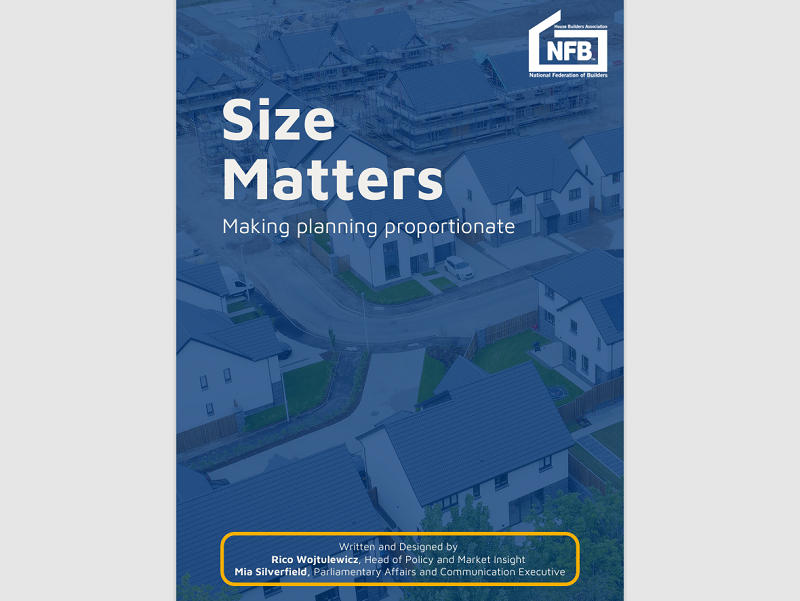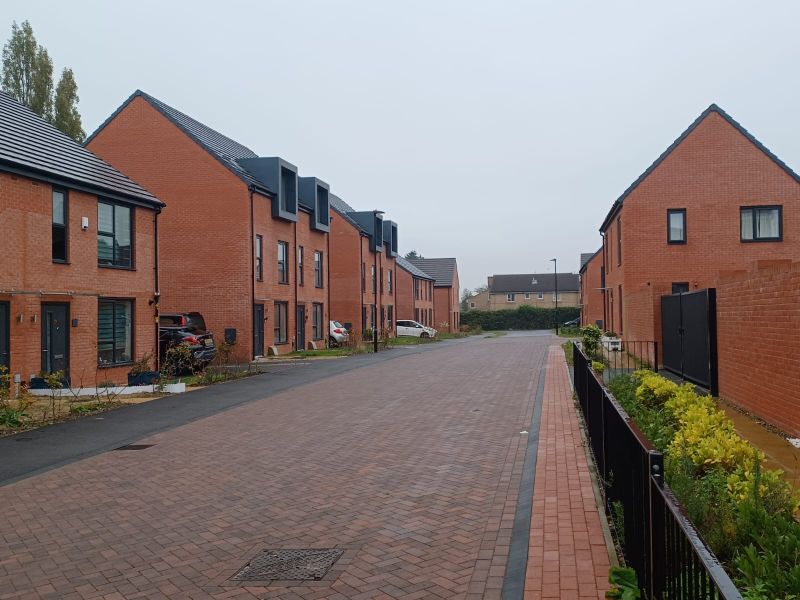The House Builders Association
(HBA), the housebuilding division of the National Federation of Builders (NFB)
has reignited its campaign for the planning system to adopt five clear site
size definitions, replacing the current arbitrary ones of ‘Minor’ (one to ten
homes) and ‘Major’ (ten and above).
Richard Beresford, Chief Executive of the NFB, said that in order to build
1.5 million new homes and save SME builders, the planning system needs to be fit
for purpose, prioritie placemaking, and enable builders of all sizes.
“Our proposal for five different site sizes based on development impact
would end the problematic two site size approach and aligns with what is
already going on in local planning, while ensuring the Government’s planning
reforms can deliver growth and good planning outcomes,” he added.

In 2018, the HBA was successful in inserting a paragraph into the National
Planning Policy Framework (NPPF) to support small and medium-size sites.
However, with the then Conservative government focusing on tweaks rather than
reforms, the HBA scaled back it’s ask to a ‘Medium’ sized sites of between 10
and 50 homes.
Although this was never taken up by the Conservative government, the term
‘medium’ was added to the NPPF, alongside a site size of ‘up to one hectare’.
NPPF reforms did not achieve their intended ambition. Data shows an
increasing reliance on large site allocations, while non-allocated ‘windfall’
sites, typically under one hundred homes, are not given as great planning
focus, however they can make up more than 50% of new local supply.
Rico Wojtulewicz, Head of Policy and Market Insight for the NFB, added: “Smaller
sites of 1 to 10 homes support projects best targeting local demand. Sites of
10 and 50 are focused on organic growth.
“Sites of fifty to one hundred support almost all SMEs and do not greatly
impact existing infrastructure. Meanwhile sites of 100 to 249 and 250+, whether
urban or rural, create a threshold which ensures planners can strategically
build out their communities or boundaries.
“Different site sizes also allow planning reform to avoid unintended
consequences, such as making planning more expensive for SMEs, creating more
burdens for non-allocated sites, or to target support, for example streamlining
planning for sites creating the lowest levels of local impact.
“Although redefining site size is not a silver bullet to fix planning, it
ensures that from the outset the system and reforms are set up to succeed, so
we can achieve a planning system that supports better placemaking and
recognises the value of all builders, whether micro, small, or large.”




















